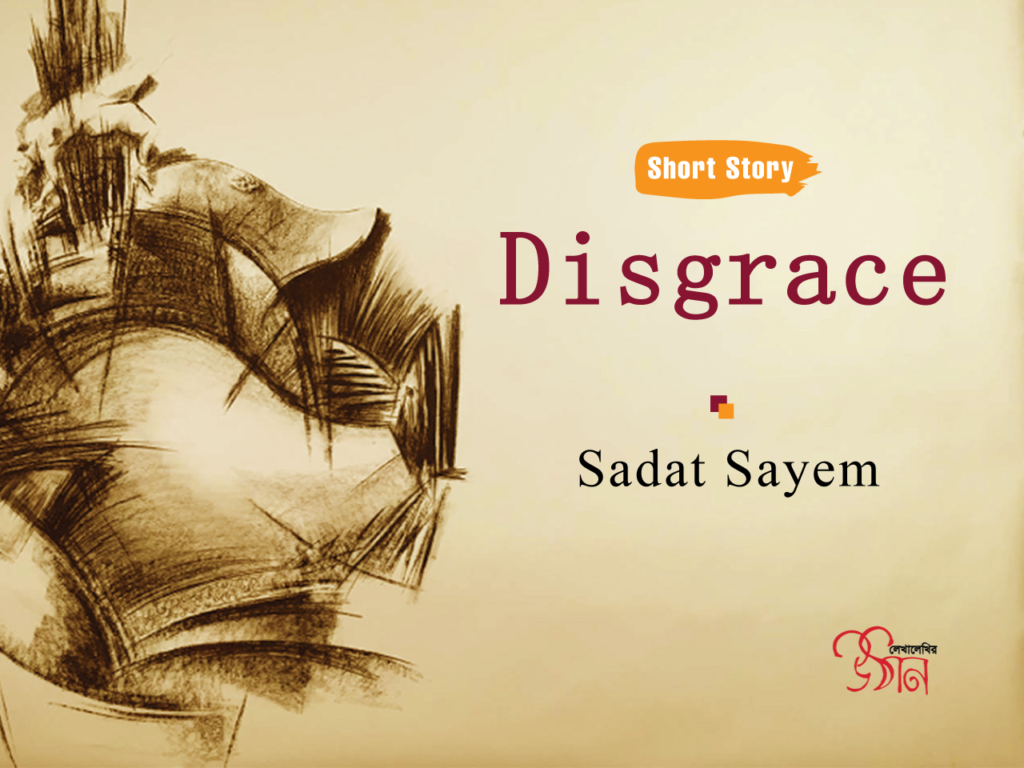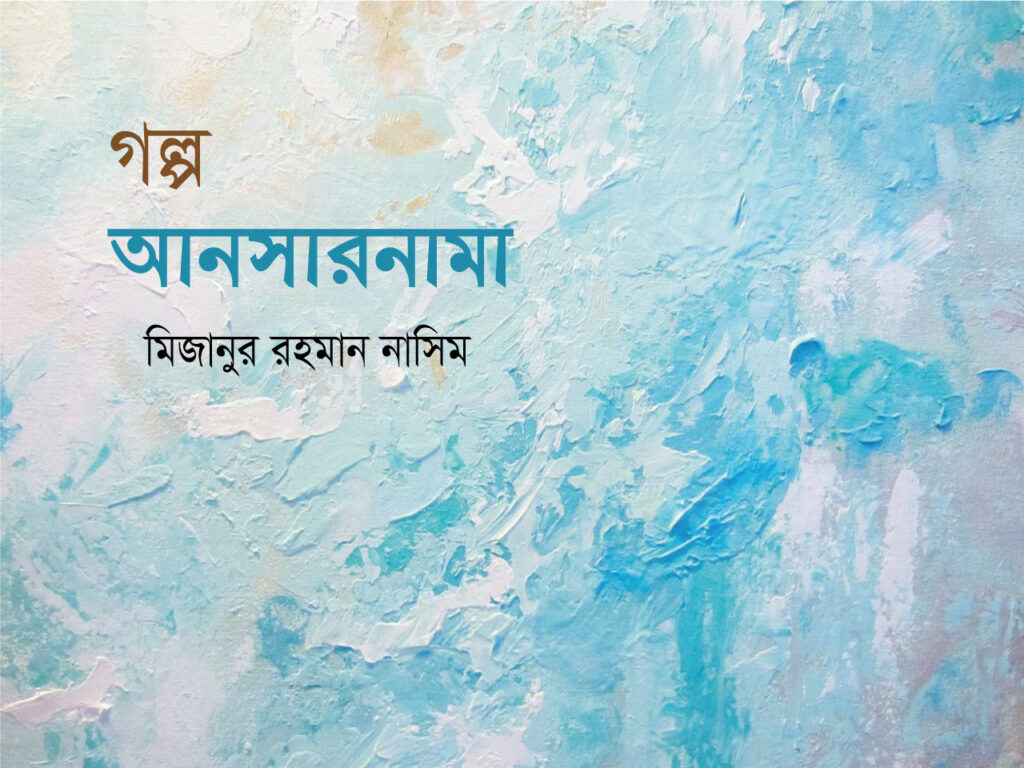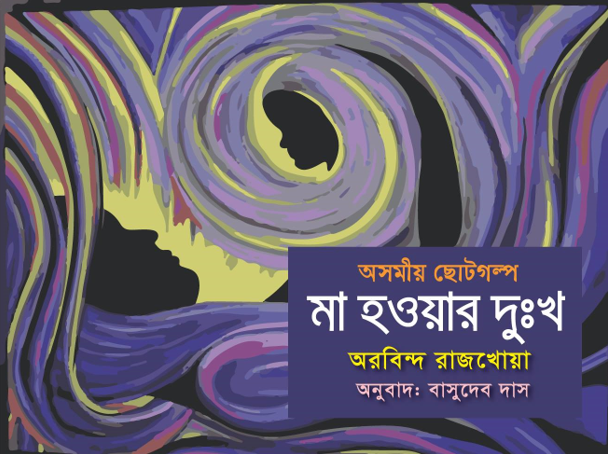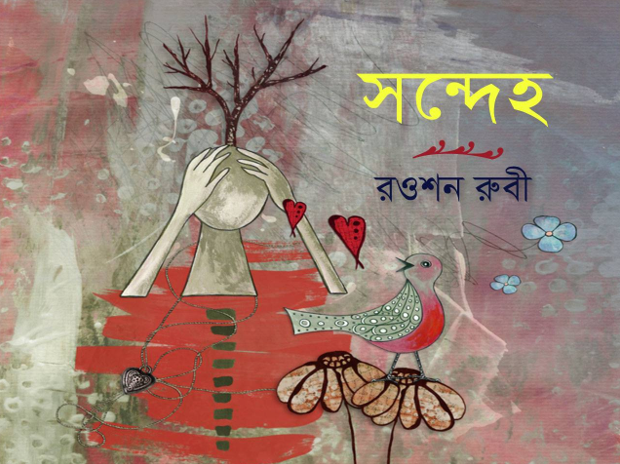The main road of the Upazila town ran parallel to the old Brahmaputra River. On one side of the road was the western bank of the river and on the other side all the important establishments — the Upazila headquarters, police station, government college, two high schools (one public and the other private), telephone exchange, government rest house, bus terminal and the grocery shop of Momin Uddin, the richest person in the locality.
Among all those key structures, there was a shop which looked like almost a sentry box. Bamboo frames were wrapped in corrugated iron sheets. The name of the shop’s owner was Abdur Razzaque, but people in the locality would call him ‘Rezaq’.
To be honest, there was nothing in Abdur Razzaque’s physique that could earn him some respect from his customers. Rather, the fat folds of skin around his abdomen sullied his entire structure. Yes, his face resembled that of our great poet Jibanananda Das. But, most of his customers had never heard of the unfortunate poet and the fortunate few, who had received some schooling, had come across the poet in their school text-books but had never ventured on a good look at his photograph. So, Razzaque’s face did not come to his aid.
Whether he was looking for such solace or not, I can’t tell you for sure. What I can tell you with certainty is that Abdur Razzaque used to wear lungi but nothing on the upper part of his body — yes, of course — except for the winter when he would cover the upper part of his body with a flannel shirt. People in the neighbourhood would talk about how old his shirt was and would always reach the conclusion that it was as old as his shop. But about when he had installed the shop, nobody could tell you.
The items at Abdur Razzaque’s shop included puffed rice, chanachur, biscuits, exercise books, pens, pencils, match boxes and low-priced wax candles. He did not sell bidi or cigarette to avoid any gathering of high-school going senior boys at his shop. Family members, especially his elder brother, said, “Rezaq is good for nothing and always swims against the tide.” So, the high-school going senior boys had to buy cigarettes from Momin Uddin’s grocery shop. They had to face Momin’s nephew Anayet there. The young man would hold the students of the private high school (which was offering co-education) hostage for their secret ventures and would use them to further his own interests, for example, to send filthy letters to girl students of their school. Schoolboys just had to put those letters secretly inside the bags of their female peers. Anayet would do it just to have some fun and to get some pleasure. People could get pleasure in numerous ways!
Another duty Anayet would perform with the utmost sincerity was to spread vicious calumnies against Abdur Razzaque.
Anayet often said, “Rezaq has no balls down there.”
Schoolboys would goggle their eyes but they would always take his statement for granted. Only on one occasion had a schoolboy made the mistake of asking him,
“How did you know that, Anayet Bhai?”
“I pulled his lungi and saw with my own eyes,” Anayet joked angrily. “You blockhead, haven’t you noticed he is a middle-aged man but is a bachelor yet?”
The inquirer flustered and the other boys laughed aloud while Anayet got immense pleasure as he could knock down the doubter and no student raised any further questions about Anayet’s statement from then on.
Against all those odds, Abdur Razzaque would open his shop in the morning and close not before midnight. Not surprisingly, his customer base was very low. He would wait for customers, listening to Abbasuddin Ahmed’s songs on his cassette player and watching the passers-by. He still had the cassettes and the cassette player despite the fact that new entertainment technologies started their onslaught in the field.
Sometimes, he became so absorbed in music that he would close his eyes and the customers would have to call several times to awaken him to his worldly business. People would say Rehana was his daily customer. The good-looking young woman who earned her livelihood by working as a tailor at a tailoring shop near the railway station would stop by Abdur Razzaque’s shop in the evening on her way home and would always find herself standing amidst the melodic voice of our great folk singer Abbasuddin Ahmed.
O boatman! Keep plying the oar
My battered boat is in the endless waters
O boatman! Keep plying the oar
Rehana would ask Abdur Razzaque in a quivering voice to give her a packet of low-priced wax candles or a packet of chanachur or half a kilogram of puffed rice. She used to call him ‘Dokander’.
After the purchase, Rehana would find a rowing boat to cross the river to reach home at Char Algi (the village was named such as it was a charland), where the divorcee lived with her aged and sick father. Rehana would often buy a packet of wax candles to offer it to the shrine of Ainal Fakir, a local pir, who was believed to have died in a distant past in the place.
The curator of the shrine received the offering while Rehana would murmur: “Hujur, please, pray for my suffering father. Hujur, pray for my cow Labu too.”
Momin Uddin always looked on Abdur Razzaque’s shop as garbage and thought it must be dumped. When he crossed the shop in his car (the one and only private car in the locality), he would throw a sarcastic smile at the shop. Abdur Razzaque did not even notice most of the times as he remained absorbed in music. At other times, when Razzaque got a glimpse of Momin’s smile, he would wonder what he had done to trigger such hostility. But he always failed to reach a conclusion because he did not consider him worthy enough of any affluent person’s attention in any way.
But Abdur Razzaque indeed became the centre of attention when the shopkeeper unintentionally stepped into a region hitherto untraveled by him — public sphere. His activities, or rather his conversation with some young people who had become interested in him at that point of time, proved to be a threat to Momin Uddin’s efforts to set up a rice mill on a wooded khas land near the haat (weekly marketplace) of the town. The influential man was trying everything to devour the land. Trees were vanishing in the dark with surprising rapidity. And at the same time Abdur Razzaque was talking about the life of trees and plants.
“Do you know trees and plants have life?”
“No, Rezaq Bhai, we don’t know.”
“Sir Jagadish Chandra Bose discovered the fact.”
“Who is he, Rezaq Bhai?”
“A great scientist!” “They, I mean trees and plants, are our neighbours.”
Soon after, a motorcycle stopped in front of his shop and the co-rider, steel in his eyes, said: “Rezaq, no more fussing over trees and plants, or you will lose your life.”
“Your valuable life!” the young man on the driving seat added, in a comical tune. It was Anayet.
Contrary to the advice, Abdur Razzaque added materials to his discourse on the issue:
“A hole is developing in our sky for felling of trees on the earth and a catastrophe of an unprecedented degree will glide through that hole into the earth from space.”
How the shopkeeper had come into contact with that outlook on ecology remained unknown to the people of the locality. Even his death could not solve the mystery; on the contrary, it raised a number of other questions. The autopsy report, however, was all conclusive: it was a suicide.
2
“How do you know he was murdered?” Rehana’s employer asked.
“I suspect. I saw Dokander going with a group of five to six people that night,” Rehana said in a quivering voice though no one was playing Abbasuddin Ahmed in the tailoring shop.
“What were you doing there at night?”
“I was returning home. I was late that night. When I reached his shop, I saw it was closed. Then I saw them, in the moonlight, walking along the road that goes to the haat where people found his body hanging from a tree the following morning.”
“In the previous day, when I was buying wax candles from his shop, Dokander said: Rehana, I am in a grave danger.’
“He was in fear of his life after the railway station demonstration against Momin Uddin.”
The tailor changed his countenance and straightened his back.
“Was the shopkeeper the instigator?”
“Most of the young men who staged the rally were from families who were the victims of land grabbing. And we all know who is doing all these land grabbing in Char Algi and why the trees on the khas land near the haat are disappearing. Dokander was the last one to know the fact.”
Her employer’s unusually broad face shrank. He said scornfully: “Shut up! Oil your own machine.”
The very next morning Rehana lost her job at the dressmaker’s shop.
Having been informed that she was no longer required at the dressmaker’s shop, Rehana set off for her home from the shop. On the way, she stopped by Abdur Razzaque’s shop. She saw a group of people dismantling it.
“Go away, you whore!” a man from the group barked at Rehana. She could recognise the man, an accomplice of Anayet. The man had groped her a few days ago as she was returning home in the evening.
She saw the shopkeeper’s elder brother throwing Abbasuddin Ahmed into the river.
Rehana resumed walking. She approached the police station. There was a car parked in front of the police station. It was Momin Uddin’s. Rehana changed her mind and went home.
Next morning, she found that her cow-shed was empty as Labu was not there.





